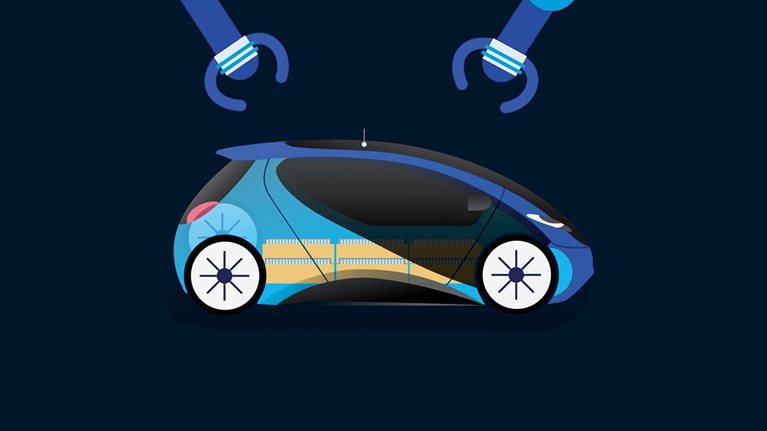In response to rising fuel prices, Germany’s government recently offered a discounted nationwide travel pass for use on public transportation—the so-called 9€ ticket. After paying a monthly flat-rate fee of just €9, consumers can travel on all regional and local transportation networks, including inner-city public transport, during the months of June, July, and August.
To gauge consumer perceptions of Germany’s new 9€ ticket, as well as the behavioral shifts following its introduction, McKinsey surveyed more than 500 consumers across the country in the third week of June 2022 as part of the regular McKinsey Mobility Consumer Pulse Check Survey.1 The June survey focused on understanding consumer sentiment toward mobility and car purchases in light of the ongoing geopolitical crisis in Ukraine.
Great interest but some challenges for the 9€ ticket
According to the survey, more than 40 percent of German respondents have already bought the 9€ ticket, while a further 20 percent plan to do so in July 2022. Most of the people who had purchased the tickets use public transport on a weekly basis; potential purchasers are more likely to be occasional users. Many people bought a ticket because they were curious about using public transport for trips that would normally involve other transportation modes. Others, especially those who do not use public transport regularly, liked the convenience of paying a flat rate for mobility.
Satisfaction levels among consumers who use public transport frequently remain unchanged from previous surveys, but the current one revealed that the 9€ ticket has had a positive impact on perceptions. Among consumers who are only occasional riders, 41 percent report that they are satisfied with their experience on public transport after purchasing a 9€ ticket. By contrast, only 23 percent of occasional riders report having been satisfied with public transport before the 9€ ticket’s introduction. The survey also revealed that more than 70 percent of the respondents who have bought such a ticket say they would increase their public-transit usage in the future.
The survey also revealed that tickets similar to Germany’s 9€ offering might be popular in other countries. In some leading markets, as many as three out of four respondents expressed interest (Exhibit 1).

Would you like to learn more about the McKinsey Center for Future Mobility?
Despite the positive overall reception of the 9€ ticket, the past few weeks have spotlighted operational challenges that arise when passenger volumes on Germany’s public-transport network increase substantially. One in three consumers is unhappy with at least some element of the journey, according to our survey. Operational-performance issues—particularly long wait times and high occupancy levels—top the list of complaints. The risk of being infected by the novel coronavirus in overcrowded trains ranks third.
Impact of the 9€ ticket on private-vehicle usage
The 9€ ticket appears to be encouraging consumers to keep their cars in the garage. When asked what mode of transport the 9€ tickets replaced, 41 percent of the survey respondents answer that they would have relied on private vehicles (Exhibit 2). Twenty-six percent say they would have used public transit anyway.

Occasional public-transport passengers use the 9€ tickets mainly for leisure trips, such as visits to friends and family, or to go on vacation. Frequent riders use the tickets for their daily commute and, increasingly, for errands such as shopping.
Future benefits of the flat-rate ticket
Some 54 percent of the survey respondents are open to using public transit more regularly if the government extended the flat-rate ticket’s availability into the winter months and beyond. Among consumers who would have traveled by private car if they hadn’t had a discount ticket, 66 percent say they would be open to using public transit more often if such discounted tickets remained available.
Although the winter months create additional challenges for passengers and transport providers, the positive implications of increased public-transit usage include reduced CO2 emissions, congestion, noise, and particulate-matter pollution. The need for parking could also fall, potentially freeing up space for bike lanes and urban “greenification” projects. In the longer term, greater usage could increase inclusivity as more people benefit from shared public-mobility offerings.

Can the automotive industry scale fast enough?
New opportunities for operators and cities
Our survey results indicate that public-transit operators and city officials may have new opportunities as a result of the 9€ ticket. Most of our respondents are interested in buying similar flat-rate mobility offerings even if limited to a specific city (Exhibit 3). Commuters who would travel by private car if they did not have 9€ tickets are especially interested—75 percent of these respondents would consider a flat-rate offering for city travel. Members of Generation Z and millennials are also very interested in such tickets.

The current fixed price point of €9 per month may change over the long term. Ninety-seven percent of respondents would pay up to €24.99 for a monthly flat-rate ticket that bundled different mobility modes for integrated access at the city level. At a higher price point—€39.99—67 percent of respondents would be willing to pay for such a ticket, while 23 percent of respondents would be willing to pay up to €54.99 per month.
We will continue to survey consumer perceptions of the 9€ ticket throughout the summer of 2022.


